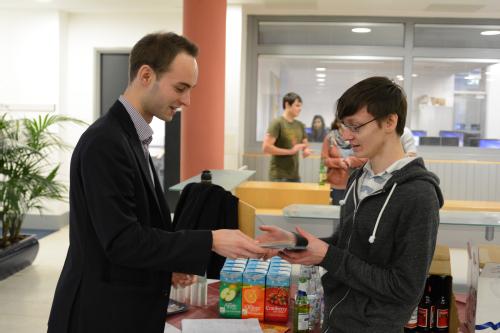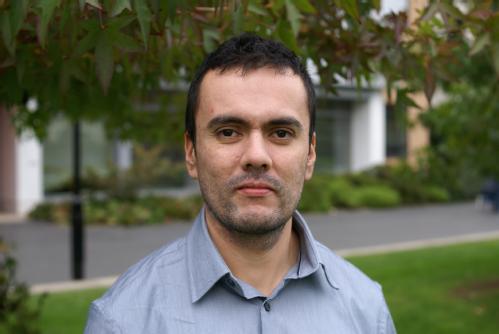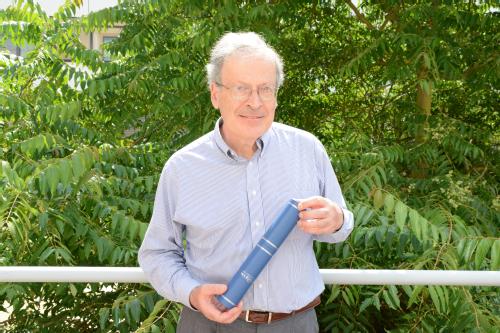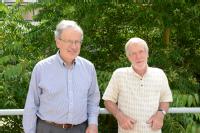Computer Science News
Ebrahim Ardeshir-Larijani completes his PhD
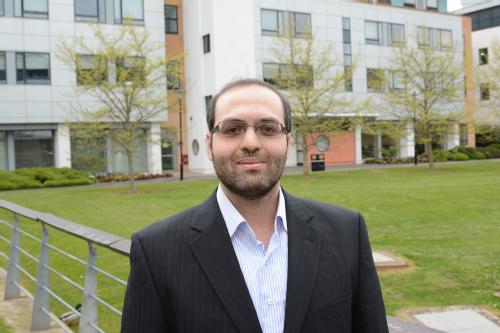
Ebrahim Ardeshir-Larijani has passed his PhD viva and his thesis has been approved, subject to minor corrections. His thesis is titled "Automated Equivalence Checking of Quantum Information Systems". Quantum information processing is an emerging technology and verification of quantum protocols is important for the design and development of quantum communication and cryptographic systems. Ebrahim's thesis presents languages (sequential and concurrent) for describing quantum systems and techniques for checking equivalence. The work has resulted in two joint papers (with Simon Gay and Rajagopal Nagarajan) in good conferences, TACAS 2013 and TACAS 2014.
Ebrahim was supervised by Dr. Ranko Lazic and Prof. Rajagopal Nagarajan, the external examiner was Dr. Ross Duncan (Strathclyde) and his internal examiner was Dr. Jane Sinclair.
How to tell if a tweet is telling the truth
How to tell if a tweet is telling the truth, The Times, Pages 1-2, 19 February, 2014.
Information we find through social media cannot always be trusted. A study of social media during the Boston bombing of 2013 concluded that 29% of the most viral content were rumours. This is clearly a major problem and, given the volume – Twitter users send 500 million tweets per day – requires the use of automated techniques to solve it. Research has already identified a number of tell-tale features in the digital ‘signatures’ of social media postings and the sources that produce them that are correlated with trustworthiness. These include posting history and connections with other social media users. The Pheme project, a new £3.5M European Union funded research project involving Computer Scientists from the University of Warwick, will build on this research and will also develop ways to analyse topics in postings, their consistency with other sources and distinguish the different ways in which social media users respond to them.
By combining these different approaches, Pheme will create computer tools with improved ability to discriminate between trustworthy and untrustworthy sources and with the capacity to process the large volumes of information circulating in social media daily. These tools will be made widely available for news media, government agencies and community organisations to use. By providing the means to amplify natural self-correction mechanisms in human communication, Pheme will help people to be more confident in assessing the veracity of information they find in social media.
See: http://www.thetimes.co.uk/tto/technology/internet/article4009691.ece
Rob Procter is Professor of Social Informatics in the Department of Computer Science, University of Warwick. He led a multidisciplinary team to work with the Guardian/LSE on the ‘Reading the Riots’ project, analysing tweets sent during the August 2011 riots. This work won the Data Visualization and Storytelling – National/International category of the inaugural Data Journalism Awards sponsored by Google, the 2012 Online Media Award for the ‘Best use of Social Media’. He is a founder member of the Collaborative Online Social Media Observatory (Cosmos), a multidisciplinary group of researchers in England, Scotland and Wales that is building a platform for social media analytics.
Bank of America Merrill Lynch 1st Year Maze Coursework Winners
Friday 6th December 2013 saw the judging and awarding of prizes for the best solutions to this year's 1st year Programming for Computer Scientists module coursework. David Deacon from Bank of America Merrill Lynch was on hand in the afternoon to award the prizes at the celebration party.
There were some outstanding solutions to the 'Robot' Maze problem this year, which involves finding the optimal path through sets of random mazes, some containing loops. As well as solving the problem at hand, some of the candidates ingeniously subverted the Java framework and produced simple games for the users to play!
This year's overall winner was Marcin Pucilowski who used an A* search for the target with a colour overlay to represent the depth of each node in the graph. Well done to Marcin! Second and third placed were Radu Blana and David Richardson. Radu too made an A* search and a snake game if you "get bored" of running on the same maze. David made 2 additional games, a block defender game and a cellular automaton that worked inside the maze. Highly commended were Rayhaan Jaufeerally, Rhiannon Michelmore and Oliver Hamelkijnck. Rayhaan made a multiplayer networked race to the target. Rhiannon also made a snake game which was great fun to play! Oliver made a Dijkstra-based search for the target. The top three winners received Amazon book tokens and all have been invited to the BAML Insight Week events to be run in spring and autumn next year.
Thank you to David Deacon and BAML for sponsoring the event this year and also to all of the Post Graduate markers involved in the one-to-one marking and feedback sessions.
Steven Wright commended for teaching

Steven Wright has been commended for teaching in DCS by the WATEPGR (Warwick Awards for Teaching Excellence for Postgraduate Research students).
Steven is a seminar tutor and teaches laboratory classes in the Department of Computer Science. It is testament to his abilities that he was given the responsibility for organising three sets of lab classes and also entrusted to design and set course assignments. He even took it upon himself to develop additional coursework assignments to further develop the students’ skills after reflecting on his own experiences of the taught courses. As his nominator points out “Steven has invariably won the praise of staff and students for his contributions to teaching, particularly for his exceptional ability to create engaging coursework assignments and software projects”
Steven’s focus for his teaching is on concept discovery and the sharing of ideas in order for students to develop a rigorous understanding of the subject. He firmly believes that by creating a relaxed environment where there is a sense of equality between students and teachers, the students are empowered to ask and answer question and discuss problems in depth.
Steven has had a major impact on the department’s activities with his technical innovations in laboratory teaching. He wrote the software required for students to develop hardware projects using the latest ARM microprocessor technology. This meant that students with no experience in microprogramming were able to engage with the latest technology and gain an understanding of systems engineering principles, whilst those who were more confident could stretch themselves against the challenging projects that Steven has personally designed.
Computer Science Support for BCS Teacher's Conference
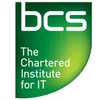
Academics in the Department of Computer Science recently contributed to the success of the BCS Coventry Computing and ICT Teacher's Conference. The event, organised by Computing at School (CAS), focused on the future of Computer Science education in UK schools and how universities can support schools in delivering effective taught programmes.
Matthew Leeke, Assistant Professor in the Department of Computer Science, delivered a characteristically animated opening keynote. With reference to ongoing research, Matt described a number of key challenges that motivate the development of smart cities, relating these to the changing landscape of Computer Science and ICT in the UK. Matt was also a member of a panel session for teachers and education professionals, focusing on issues such as industrial engagement and inclusiveness in Computer Science.
Claire Rocks, Teaching and Outreach Fellow in the Department of Computer Science, later facilitated a specialist workshop on robotics and a speed networking event that brought together educators and industrials. These sessions complemented a sensor-focused workshop provided by Margaret Low, Principal Teaching Fellow in the Warwick Manufacturing Group, to demonstrate the commitment of universities in the West Midlands enriching UK Computer Science and ICT curricula.
Dr Victor Sanchez awarded Marie Curie Grant
Dr Victor Sanchez, Assistant Professor in the Department of Computer Science, has been awarded a Marie Curie Career Integration Grant from the Research Executive Agency of the EU to fund his research for the next four years. The Integration Grants assist researchers in integrating themselves in the EU with their own research budget. For the first call of 2013, more than 800 proposals from around the EU were submitted of which 22% received funding. Dr Sanchez research will focus on developing methods for storing and manipulating whole-slide images of pathology specimens, which are multi-gigapixel colour images of over 80k × 80k pixel resolutions. He will work in collaboration with the Computational Biology and Bioimaging (COMBI) group, and researchers from Universitat Autonoma de Barcelona and University of Arizona.
Leslie Valiant awarded honorary degree
Leslie Valiant was awarded Honorary Doctor of Science today during the University of Warwick 2013 summer graduation ceremony.
Leslie Valiant was educated at King's College, Cambridge; Imperial College, London; and at the University of Warwick, where he received his PhD in computer science in 1974. He is currently T. Jefferson Coolidge Professor of Computer Science and Applied Mathematics in the School of Engineering and Applied Sciences at Harvard University, where he has taught since 1982. Before coming to Harvard he had taught at Carnegie Mellon University, Leeds University, and the University of Edinburgh.
His work has ranged over several areas of theoretical computer science, particularly complexity theory, learning, and parallel computation. He also has interests in computational neuroscience, evolution and artificial intelligence. Leslie is the author of two books, Circuits of the Mind, and Probably Approximately Correct.
He received the Nevanlinna Prize at the International Congress of Mathematicians in 1986, the Knuth Award in 1997, the European Association for Theoretical Computer Science EATCS Award in 2008, and the 2010 A. M. Turing Award. He is a Fellow of the Royal Society (London) and a member of the National Academy of Sciences (USA).

